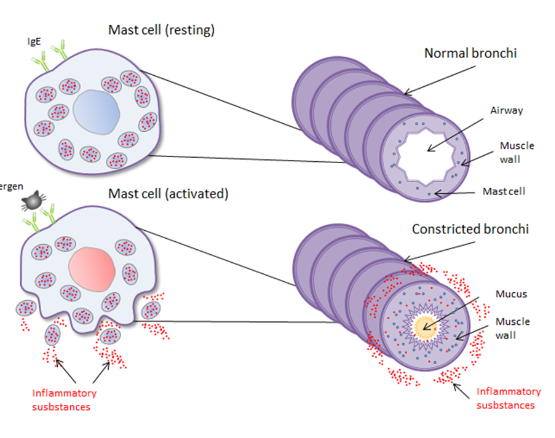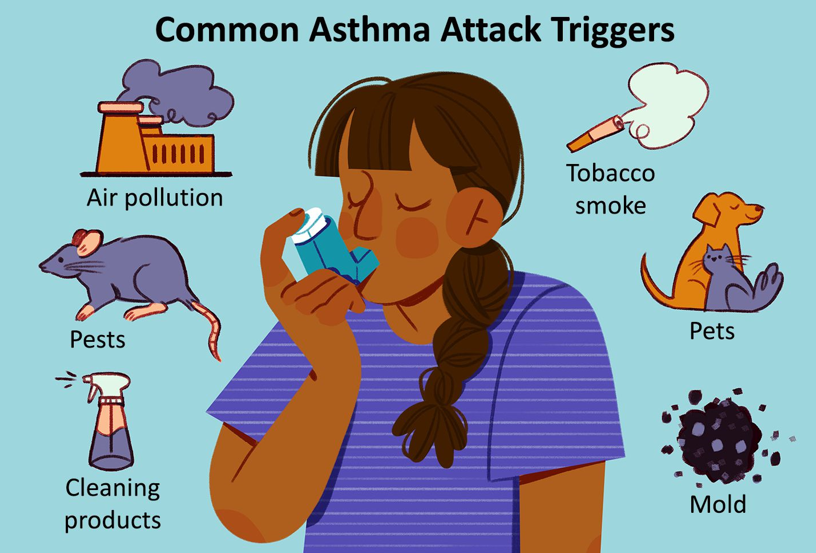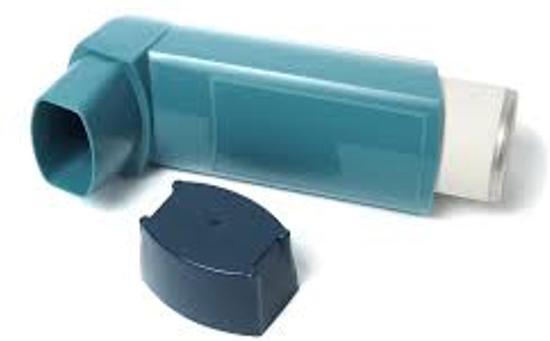Allergic (atopic) asthma
According to Asthma and lung UK. Allergic asthma, sometimes called atopic asthma, is asthma triggered by allergens like pollen, pets, and dust mites. About 80% of people with asthma have allergies. This is a condition which causes the airways to become inflamed. Symptoms include wheezing, breathlessness, tightness of the chest and coughing (especially at night). It usually develops during childhood and often runs in families.
The cause of allergic asthma isn’t truly known. However, for those with allergic asthma, the reason symptoms start is related to allergens. This is the main difference between allergic asthma and other types of asthma. The allergens are inhaled and trigger asthma symptoms. When a patient / customer experiences severe asthma symptoms, it’s called an asthma attack.
Inflammation of the airways can be caused by allergens such as:
- House dust mites.
- Pollen.
- Animals.
- Tobacco smoke.
- Physical exercise.
- Change in air temperature.
- Respiratory infections e.g. colds and coughs.
- Mould/fungi.
- Medicines.
Symptoms
Patients with allergic asthma may have many of the same symptoms you would experience with other types of asthma. These symptoms can include:
- Shortness of breath.
- Frequent coughing, especially at night.
- Wheezing (a whistling noise during breathing).
- Experiencing chest tightness (feels like something is pressing or squeezing on the chest).
These symptoms can be very intense during an asthma attack. Patients should have e a treatment plan in place if they have severe asthma symptoms — this plan often includes an inhaler (sometimes referred to as a rescue inhaler).
Patients can also experience symptoms more closely related to allergies. These are usually less intense than asthma symptoms and can happen when you’re exposed to an allergen. These symptoms can include:
- A stuffy nose.
- Itchy or running eyes.
- Sneezing.
- Hives and / or rashes.
Treatment is often two-fold, managing symptoms through medication e.g. inhalers, and prevention through lifestyle changes and allergen avoidance. To read further on asthma, visit the Allergy UK Asthma website.
Top tips to advise your customers who have allergic asthma:
- Take your medication.
- Give up smoking.
- Exercise regularly.
- Know what triggers your asthma and try and avoid them where possible.




